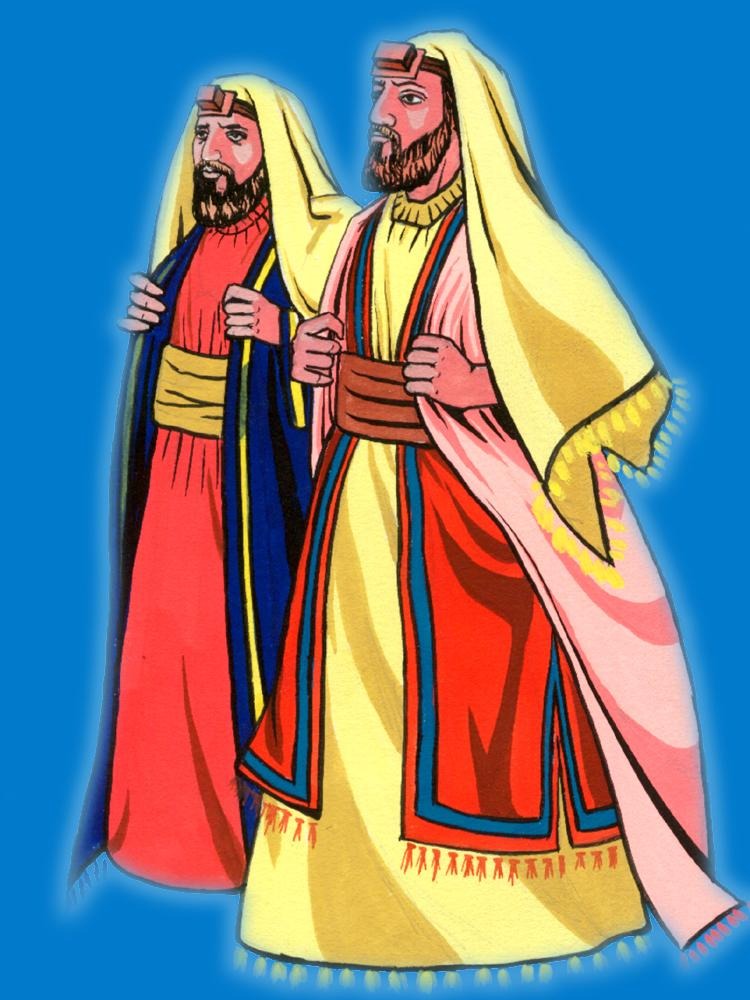
Jeremiah 7–9
Jeremiah 7:21–8:3, 9:22 (23)–23 (24), “The Sacrifice of the Wicked Is an Abomination” to YHVH (Prov 15:8).
This message of Jeremiah reveals that the purpose of sacrifice and of all outward acts of worship should be to deepen the inward sense of religion and to stimulate one to a holy or set-apart life. Jeremiah, speaking for YHVH, decries the uselessness of religious activity when accompanied with unholiness and unrighteousness. Furthermore, he denounces the mere mechanical performance of acts of worship; of the superstition that the temple ritual could be a guarantee of security from the judgments of Elohim, while the Israelites were divorced from obedience to YHVH’s Torah. Only whole-hearted repentance could avert a national disaster brought on by YHVH’s judgments (Soncino Pentateuch, p. 439).
What is the true meaning of religion and what was the true purpose of the temple in Israel? Its purpose was to transform people into living temples that would be set-apart or holy unto YHVH Elohim. If they acted one way while in the temple and another way while outside the temple, then the temple activities had only become a mockery of YHVH, a farce and a repugnance to the very one they had supposedly come to worship. Humans may kid themselves by their religiosity, but they cannot deceive the Holy One of Israel who sees all and who reads their hearts and minds. He is not moved by mere outward show of religious piety. What are your true heart motives for pursuing the religion of the Bible? If it is for any reason other than out of a deep, abiding love for Yeshua, for a desire to draw close to the Father in a personal one-on-one way, to walk in righteousness as an act of faith and worship toward him, then your motives need to be reevaluated and readjusted.
Let us define some important words that sadly all too often relate to religious folk. These words are:
- Pretense, which is “a claim made or implied, but not supported by fact; ostentation.”
- Ostentation, which is “anexcessive display; pretentiousness.”
- Hypocrisy, which is “a feigning to be what one is not or to believe what one does not; the false assumption of an appearance of virtue or religion.”
What does the Word of Elohim have to say about hypocrisy? Please review the following biblical passages:
- Job 13:16; 15:31,33,34; 20:4,5; 27:8–10
- Psalm 78:34–37
- Proverbs 15:7; 21:27
- Isaiah 1:13,15; 29:13–16; 48:1–2; 66:3–5
- Jeremiah 3:10; 7:4, 8–10
- Hosea 10:1,4
- Matthew 6:1,2,5,16,24; 7:5,15,21–23; 15:7–9, chapter 23
- Luke 11:39,42,44,52
- Romans 16:18
- Galatians 6:3
- Titus 1:16
- James 1:8,22–24,26; 2:14–26; 3:17
- 2 Peter 2:1–3,17,19
- 1 John 2:4,9,19; 4:20
- Revelation 3:15–18
Now let’s review some statistics relevant to the state of the American Christian church from George Barna’s book, The Index of Leading Spiritual Indicators—A Statistical Report on the State of Religion in America. This book was first published in 1996, yet how much has the American church changed for the better since then? Here are some startling statistics:

- 85% of Americans claim to be Christian
- 10% of Americans are “Bible Christians”: that is, they fully accept biblical authority, total trust in Christ for salvation, are evangelistic and are active in a church, and believe in moral absolutes.
- 25% of Americans are “Conventional Christians”: they claim total trust in Christ for salvation, are involved in a church, they exercise a privatized faith, believe in moral relativism and appreciate the Bible.
- 28% of Americans are “Cultural Christians”: they have a universalistic world-view, their religion is works based (i.e., they believe that good people will go to heaven), they are moral relativistic, nominal church involvement and are Christian in name only.
- Of those who claim to be Christian, only 40 percent believe in a literal Satan; 63 percent believe in the accuracy of the Bible; only 30 percent read their Bible in a week; only 57 percent agree that good people will go to heaven; only 31 percent believe in a fiery place of torment after death; 37 percent believe hell is only symbolic; only 9 percent knew what the “Great Commission” was; 63 percent had no idea what “John 3:16” referred to; and only 35 percent could accurately define the meaning of the word gospel.
YHVH sent the prophet Jeremiah to warn the nation of Israel of impending doom if it failed to repent of its disobedience to him. He then cites many examples of various sins that had become odious in YHVH’s nostrils. In their smugness, the Jews felt secure because they possessed the temple in Jerusalem. Surely YHVH would not allow the Jews to be destroyed for the sake of his spiritual house. Yet Jeremiah warned that this security was a false one and to prove his point he calls to their attention the example of the Northern Kingdom or house of Israel, which had already been taken captive a couple of generations earlier. What parallels do we see in the Christian church that are similar to those of the Southern Kingdom or house of Judah of Jeremiah’s day? How many Americans take comfort (and pride) in the notion that America is a “Christian nation” and that certainly YHVH would allow nothing disastrous to happen here? Some take comfort in America’s military and economic might. Others feel that a pre-tribulation rapture will carry them “out of here” when the going gets tough. Is it possible that some might be in for a rude awakening one of these days when things don’t go as planned? We know from history that the temple in Jerusalem—as if it were some lucky talisman—did not protect the Jews who. The stark reality of this came to rest on the Jewish people as they watched their beloved temple go up in flames, even as their conquerors were dragging them off in chains to be slaves in a foreign nation. Could the unexpected happen to America, or any other country? Is YHVH any more duty-bound to protect us than he was the Jews of that day?





